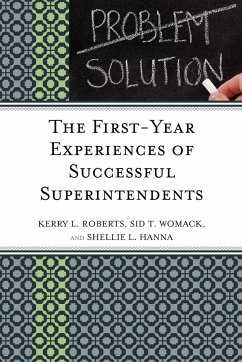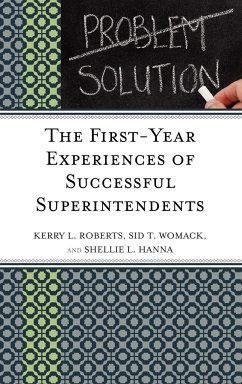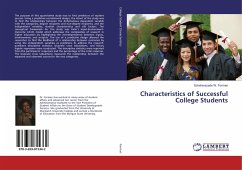
The "Other" Superintendent: Successful Women Superintendents
Versandkostenfrei!
Versandfertig in 6-10 Tagen
52,99 €
inkl. MwSt.

PAYBACK Punkte
26 °P sammeln!
This research study explored the superintendency through female epistemology. This research study sought to understand how women view themselves as educational leaders, what decision making models they employed, and how they have successfully thrived in a position rife with difficult decisions and political landmines. The central research questions of this study were: What leadership style(s) do female superintendents believe is most effective in achieving their vision for the school district they serve? What communication style(s) characterize(s) female superintendent s (s ) interactions with...
This research study explored the superintendency through female epistemology. This research study sought to understand how women view themselves as educational leaders, what decision making models they employed, and how they have successfully thrived in a position rife with difficult decisions and political landmines. The central research questions of this study were: What leadership style(s) do female superintendents believe is most effective in achieving their vision for the school district they serve? What communication style(s) characterize(s) female superintendent s (s ) interactions with various stakeholders? What ethical framework(s) inform(s) female superintendent s (s ) decision making? How do female superintendents view themselves in the role of leader? This study utilized a qualitative methodology. Participants included eight randomly identified superintendents from the collar counties of Metropolitan Chicago. Four of these participants were recently retired. Four werecurrently practicing superintendents.












